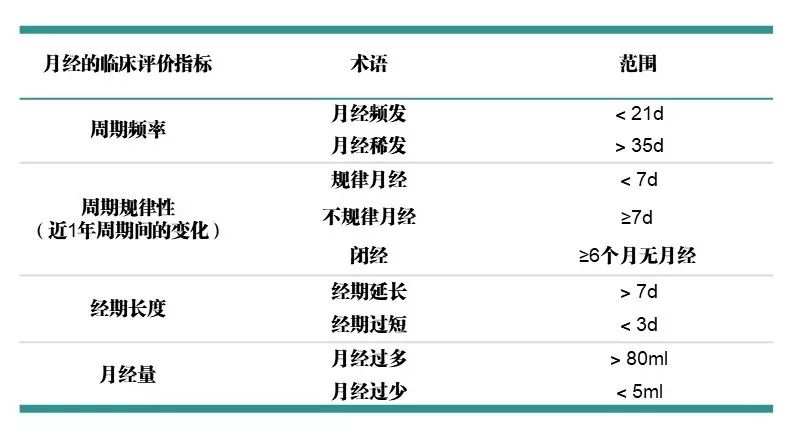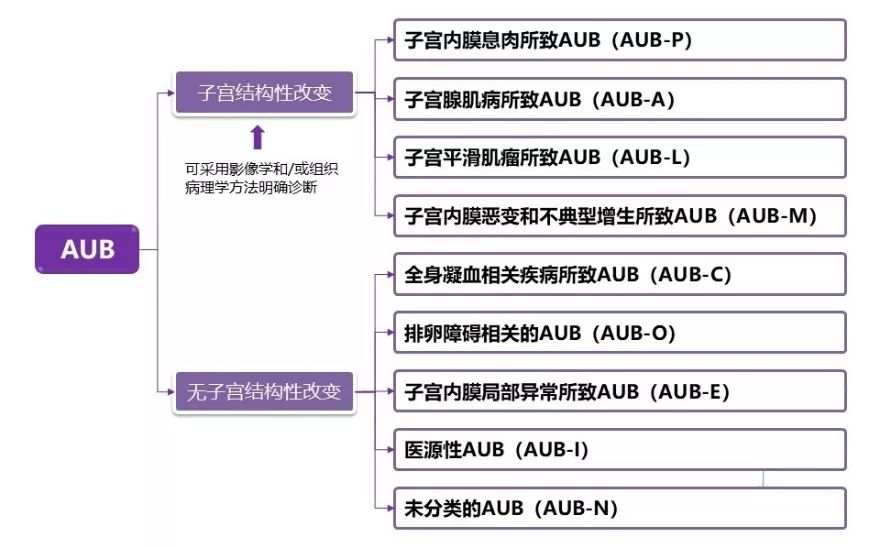Hello everyone, I am Zou Shien, a male obstetrician and gynecologist. I have been an obstetrician and gynecologist for 15 years and have been lucky enough to help many patients.
However, I also regret to find that many female friends know very little about their own bodies and women’s unique knowledge.
Many people ask me: will menstrual disorder cause infertility, do you want to adjust your menstruation before getting pregnant?
To tell the truth, this is not a word or two that can be made clear. Let’s take a look at the what relationship between menstrual disorder and pregnancy.
Must first understand what is menstrual disorder?
Let’s first look at the normal menstruation should be how, and then know that what is menstrual disorder. According to our country’s guidelines, normal menstruation needs to meet the following four standards:

Photo Source: Provided by Author
In these standards, the regularity of the menstrual cycle is very important. If the regularity of the menstrual cycle, the cycle and the number of days of the menstrual period slightly exceed the standard, most of them are not a big problem. For example, if menstruation comes once every 40 days, which is very fixed, we can also accept the 40-day cycle and do not necessarily need to deal with it.
Of course, it is also necessary to exclude pregnancy-related bleeding and bleeding in cervix and vagina, so the scientific name of menstrual disorder can be called “abnormal uterine bleeding”.
Let’s take a look at the common etiological classification of abnormal uterine bleeding, mainly including these:

Photo Source: Provided by Author
Some menstrual disorders can cause infertility.
The most common cause of menstrual disorder is ovulation disorder of the ovary, which does not ovulate or rarely ovulates. Without seeds, infertility will naturally occur. Occasionally, if you are lucky enough to conceive, it is relatively easy to miscarry.
This kind of disease is mainly related to endocrine. Common diseases include polycystic ovary syndrome, early onset ovarian insufficiency, premature ovarian failure, hyperprolactinemia, hypothyroidism, etc.
Among them, polycystic ovary syndrome needs to adjust androgen to a certain range (menstruation can return to normal at this time) before ovulation induction treatment. Premature ovarian failure is often difficult for a skillful woman to cook without rice, and the hope is slim, but it is not difficult for what to regulate the regular flow of menstruation.
Other diseases can restore normal menstruation and ovulation while regulating endocrine.
There are also some uterine lesions that can cause menstrual disorders and also create an environment unfavorable to the implantation of fertilized eggs, leading to infertility or abortion.

For example, endometrial polyps, submucosal leiomyomas, uterine mediastinum and other deformities may need to be removed by hysteroscopic surgery before preparing for pregnancy. If the intimal hyperplasia is too long or early canceration occurs, there is a chance to reverse the intimal hyperplasia to normal after using high-efficiency progesterone for several months before preparing for pregnancy. Mild to moderate adenomyosis has a greater chance of pregnancy, while severe adenomyosis is more troublesome and lacks a particularly good method to assist pregnancy.
Therefore, whether to adjust menstruation before pregnancy cannot be generalized.
Sometimes when you think it’s menstrual disorder
May be pregnant
We have always stressed that in the diagnosis of menstrual disorders or abnormal uterine bleeding, pregnancy-related bleeding needs to be excluded first. However, most of the time, it is difficult for patients themselves to distinguish the difference between abnormal menstruation and pregnancy bleeding in what.
All kinds of abortion: such as threatened abortion, spontaneous abortion, inevitable abortion, etc., the time of bleeding may be the time when menstruation should come. If it is a patient with irregular menstruation at ordinary times, it is even more difficult to distinguish.
If you don’t have stomachache, you can buy an early pregnancy test yourself, two bars will come to the hospital in time, and one bar will also go to the hospital if the bleeding time is long or the amount is large. If there is stomachache and bleeding, it is recommended to go to the hospital quickly.
Ectopic pregnancy (ectopic pregnancy): The most common is tubal pregnancy. Now cesarean section incision pregnancy is also increasing. No matter what kind of ectopic pregnancy, it is more dangerous and requires hospitalization.

However, it is difficult to distinguish ectopic pregnancy from abortion of intrauterine pregnancy in the early stage, so it is suggested that if you have bleeding or stomachache, you should go to the hospital after testing the two bars of early pregnancy test paper.
In short, if menstruation is not the same as in the past, you should first buy an early pregnancy test paper for testing. If a bar, no stomachache, bleeding quickly stopped by yourself, you can not go to the hospital. In other cases, it is recommended to see a doctor in time.

After talking about menstrual disorder, I would like to tell you something else.
My main attack direction is gynecology, and the popular science articles published on the public number [Enge Talk about Health] mainly focus on gynecology diseases and women’s health care knowledge.
Simple and clear, spreading health knowledge and caring for women in joy, this is my goal of opening WeChat public number [Enge Talk about Health].
In addition to publishing popular science articles, I also provide voluntary consultation on the public number. As long as it is suitable for online consultation, I will try my best to answer it. Although I have paid some time and energy, it is meaningful to be able to solve the patient’s problems and reduce the number of patients going to and from the hospital.
-References-
Gynecological Endocrinology Group, Obstetrics and Gynecology Credit Association, Chinese Medical Association. Guidelines for Diagnosis and Treatment of Abnormal Uterine Bleeding. Chinese Journal of Obstetrics and Gynecology, 2014, 49 (11): 801-806.
